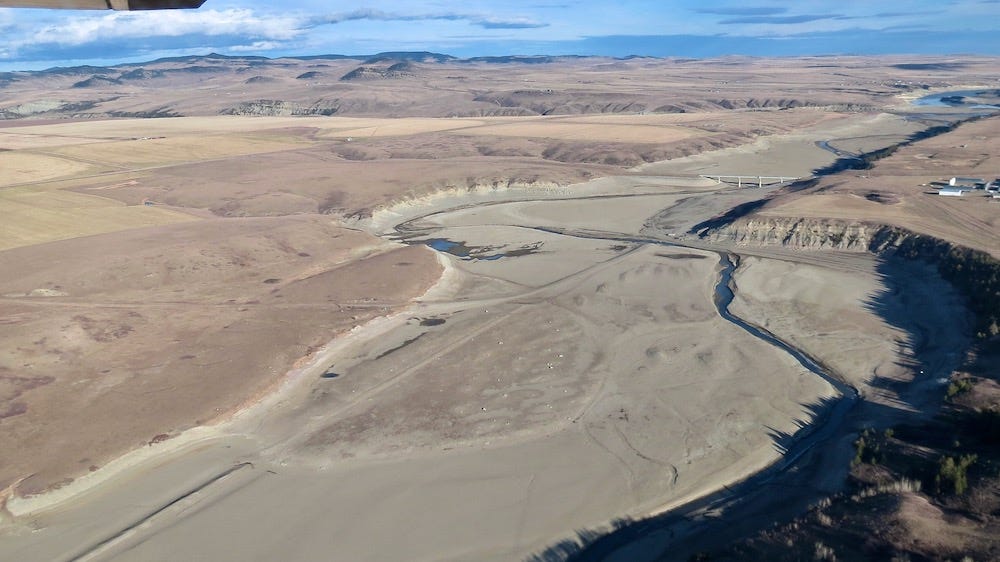Prairie Water : Sovereignty, Scarcity and Conservation
A webinar hosted by the Council of Canadians
Remember this:
The Council of Canadians. People. Planet. Democracy.
COMING UP THIS WEDNESDAY
Join the Edmonton Chapter of the Council of Canadians on June 4th, 7pm MST for Prairie Water| A webinar on Sovereignty, Scarcity and Conservation.
Very recent rhetoric by US President Trump to annex Canada, including our fresh water, has concerned many Canadians. Some claim this to be more Trump “hot air”. Others insist that we need to take Trump seriously.
The Council of Canadians Edmonton Chapter plans an Expert Panel Webinar with speakers from hydrology, law, agriculture and biological sciences to address this question and relevant internal issues. Specific questions we hope to answer include :
1) What are the current internal threats to Canadian prairie water? Fresh water in Canada’s Prairie Provinces is also arguably under serious threat from climate change and drought, source depletion, industrial growth, hydroelectric dams, outdated policies, agreements and laws and mismanagement.
2) What tools do Canadians have to confront threats to our water? Laws, agreements and treaties are available to us, such as the Alberta Water Act currently bans bulk water export. But can Trump overrule these?
3) Can we transform the perceived threats to our water into opportunities to conserve what we have?
JUNE 4th
7:00pm MST
REGISTER HERE.
SPEAKERS AND TOPICS
Dr. Tricia Stadnyk – P.Eng. Canada Research Chair Tier II (Hydrologic Modelling) Professor, Schulich School of Engineering (Civil) & Faculty of Arts (Geography) University of Calgary | Treaty 7
Topic – Canada’s water security for the 21st century as decreasing supply across a drought-prone Prairies intersects with increasing demand, intensive regulation and practices, antiquated licensing, and geopolitical tension: deficient policy and investment, and an insufficient national water policy.
Wendy Holm, P.Ag.(Ret’d), M.M.C.C.U.
Topic – Peace River Hydroelectric Dams, i.e. Existing Bennett and Site C dams, proposed Amisk Hydroelectric Dam, trade agreements and US Army Corps of Engineers continental plans to divert Alaskan water into the Peace River and south into the US via the Amisk dam.
Dr. Allen Good, Professor Emeritus, U of A Biological Sciences
Topic – Demand for water by the agricultural sector, and how that integrates with the changes in available water due to climate change. Water agreements in S. Alberta and Sask.
Martin Z. Olszynski, LL.M, LL.B., B.Sc. Associate Professor and Chair in Energy, Resources and Sustainability, Faculty of Law, University of Calgary – Martin previously worked as legal counsel for Fisheries and Oceans Canada.
Topic – Alberta rules around water licensing and prohibitions on inter-basin transfers.
Please join us to help determine the future of our most precious resource – water.


This is what the Alberta Innovates, Emissions Reduction Alberta and Lafarge are recommending on their recent report about impacts to water if there is to be carbon capture in Alberta. “Foster a better province-wide understanding of Alberta’s groundwater resources and enhance data collection and accessibility to help project proponents meaningfully evaluate sustainable groundwater use as an alternative to surface water use. This should leverage existing efforts to understand and responsibly manage groundwater resources and could include the development of a centralized database to store and share groundwater data.
3. Support the further development and deployment of technologies to enable the reuse of excess recovered water from CCUS projects. This will reduce the water consumption of CCUS broadly and has the potential to beneficially offset the demands of other industries (e.g., hydrogen) within a given river basin.” Read the report Study of Water Impacts of CCUS Development in Alberta https://www.eralberta.ca/wp-content/uploads/2025/05/WaterSMART_CCUS-Study_Report_2025.04.08.pdf
They give 3 scenarios for water use and availability and have a new GOA branch working with water use and circulation it would seem the water act is being amended by the EPA or Environmental Protected Areas with the survey made public until June 30. More details on the website here https://www.alberta.ca/water-availability-engagement
They have chosen Milk River, Battle River and South Saskatchewan to remove the 10% holdbacks and these are in basins that are currently available as a water basin of the 11
Hay
Peace/Slave
Athabasca
Beaver
North Saskatchewan
Battle
Red Deer
Bow
Oldman
South Saskatchewan
Milk.
There are proposed CCUS projects in all of these basins depending on water availability. This is mainly a reminder that water is becoming a commodity more so when the GoA and their branches have been sharing with industry partners for these water resources.
Thanks for sharing and more details on the link here https://edmontoncouncilofcanadians.ca/2025/05/20/prairie-water-sovereignty-scarcity-and-conservation/?fbclid=IwZXh0bgNhZW0CMTEAAR4-KhnspKu-kJyXlU04xaSC84AT1uIk9Z8Z0JvaDPvunN9F3YXVRksVOW_CAA_aem_qpg2Wv3hL30Gb__ZZwB7lg#like-6834
Please see the invite to our Prairie Water Webinar on Wednesday, June 4 at 7 pm you can register on the link below. https://canadians.org/event/prairie-water-sovereignty-scarcity-and-conservation/
I hope that you are able to attend.
Please see the attached information regarding the EPA on water availability since there was a lot of discussion on the recent water act the mediators for EPA might not have shared that there are changes to be included in the water act once a survey has been made available it would also be a concern during the mediation process if changes to water licences are enacted in the future
The phase one engagement feedback also included ideas to improve physical water availability. https://your.alberta.ca/water-availability?tool=qanda#tool_tab
More details on the website here https://www.alberta.ca/water-availability-engagement
Here is a report which was just published by Alberta Innovates a few weeks ago.
The title is: Study of Water Impacts of CCUS Development in Alberta. It paints a disturbing picture of the massive volume of water potentially needed for the proposed Pathways Alliance CCUS development. All the water would be sourced from the Athabasca River Watershed. I don't think the northern communities have been honestly informed about the massive water requirements of this CCUS proposal.